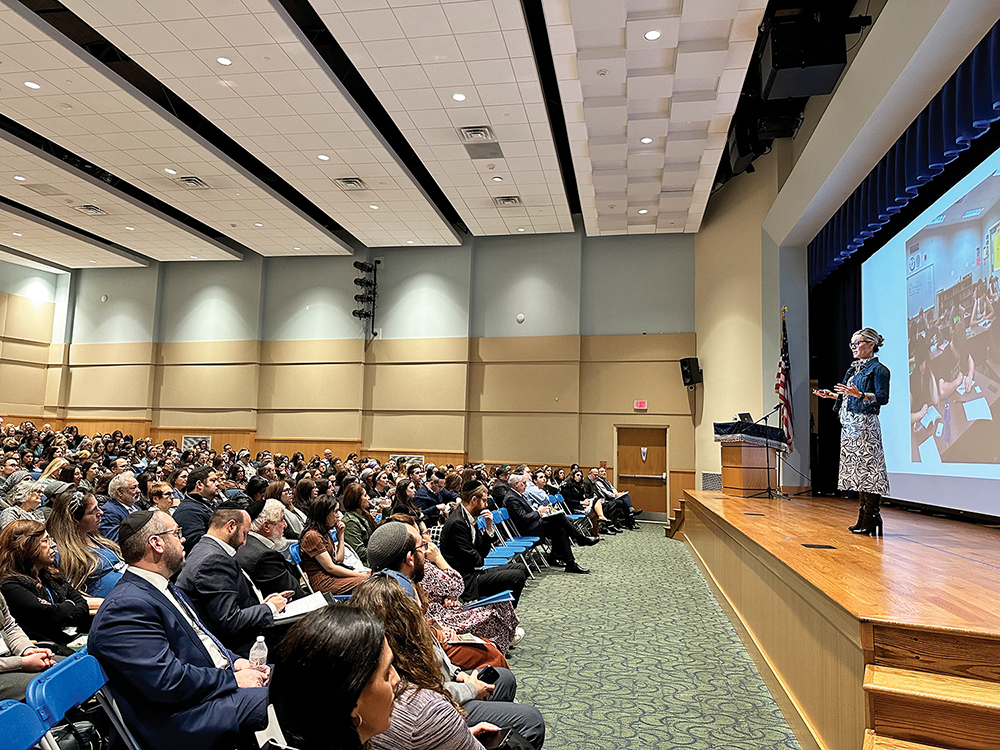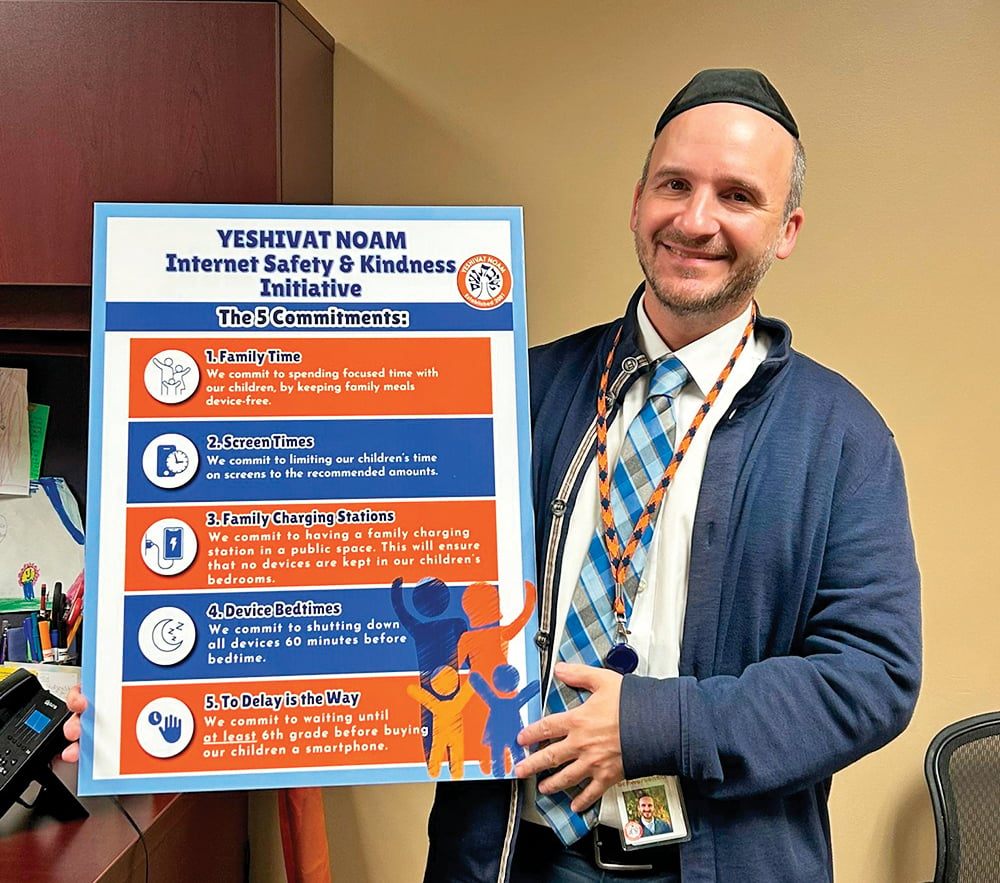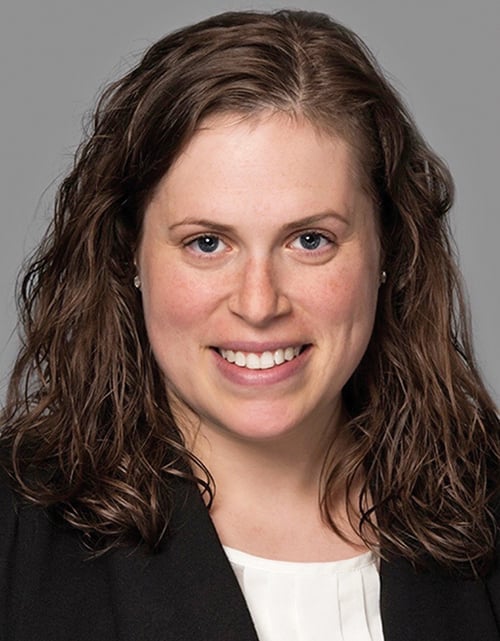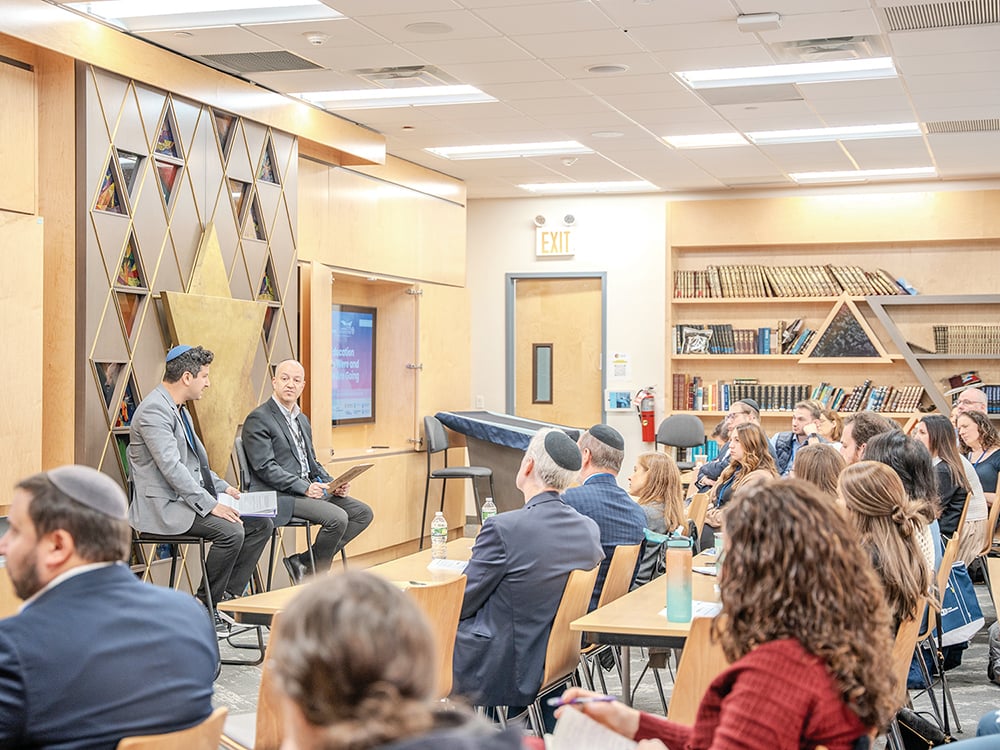
Since October 7, 2023, educators have faced unprecedented challenges in addressing Israel and Zionism in and out of the classroom. Due to the ongoing war in Israel and the sharp rise in anti-Zionist rhetoric over the past year, it is critical to equip educators with tools to bring Israel’s history to life for their students in meaningful and nuanced ways.
Recognizing a growing need, Unpacked for Educators (UED) hosted an empowering two-day conference, “Navigating Israel Education in Times of Conflict,” at SAR High School in New York. Made possible with support of the Maimonides Fund, the event brought together 80 educators from 41 schools and organizations across the tri-state area for a deep dive into innovative approaches to Israel education.
Tackling the Big Questions
The conference tackled complicated topics such as Israel’s rich history, current events and the complexities of teaching about the region during times of conflict. Day 1 opened with thought-provoking sessions, including a keynote panel on “Israel Education: Where We Were and Where We Are Going,” featuring Rabbi Tully Harcsztark, founding principal of SAR High School and dean of Machon Siach, and Dr. Noam Weissman, EVP of OpenDor Media.
Breakout sessions like “The Top 5 Zionist Moments All Our Students Should Know” and “Religious Zionist Visions: Understanding the Current Discourse and Debates” sparked meaningful discussions about how to integrate Israel education into school curricula and align it with broader educational standards.
Day 2 focused on equipping educators with practical tools for addressing difficult questions and fostering productive dialogue in the classroom with sessions including “Modeling Difficult Conversations Around Israel in the Classroom” and “Unpacking Difficult Questions with Your Students: Apartheid and Occupation”.
These discussions gave educators the confidence to navigate complex topics with their students while fostering understanding, critical thinking and empathy.
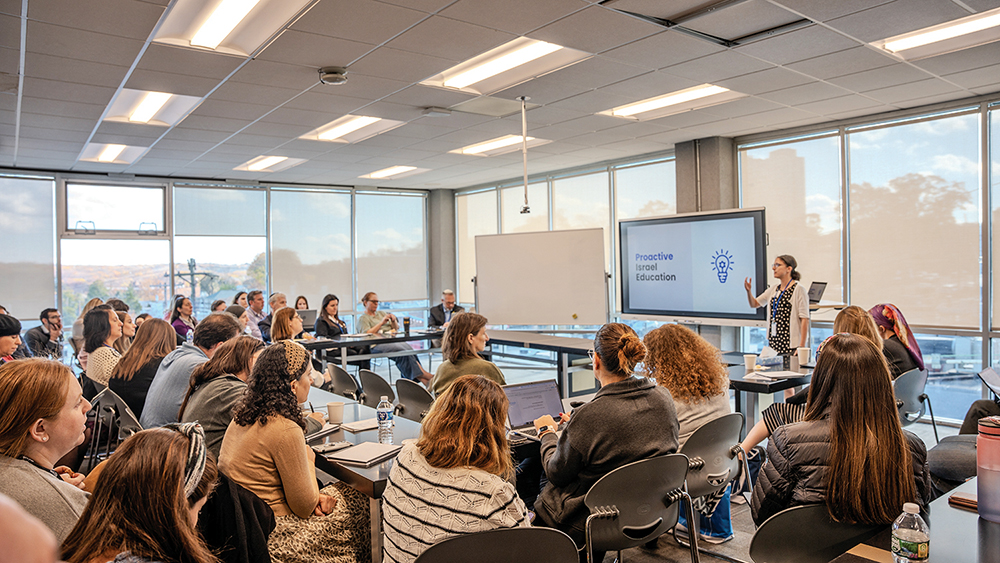
Fostering Dialogue and Connection
The conference left a lasting impression on attendees, with 96% of participants stating that the content was directly relevant to their classrooms and 100% reporting that they gained valuable perspectives to bring back to their schools.
“What I appreciate the most about UED is their commitment to helping educators give their students a full picture of Israel’s past and present,” said Amanda DeBauche Nichols, assistant director of the Lese Center for Living Judaism at Central Synagogue. “I was instinctively bought in on the idea that giving students the opportunity to see all sides of a given issue was the best way to give children a strong connection and love of Israel. It was so valuable to hear from speakers who provided the theoretical and practical framework for making that instinct a reality.”
“One idea that resonated with me was how important it is for our students to be engaged with and connected to developments and debates in Israel, even if they don’t plan on moving there,” said Chani Rotenberg, history department chair at Ma’ayanot Yeshiva High School for Girls. “We must provide opportunities for them to find their place as Zionists both here and in Israel.”
“It was amazing to witness such a diverse group of educators collaborating on holistic approaches to Israel education,” said Sarah Gordon, conference organizer and senior director of Israel education for UED. “There was tremendous excitement about bringing these ideas back to their schools.”
“Our goals were to bring together Israel educators to discuss the big questions surrounding how we teach Israel in a post-October 7th world,” said Rebecca Wolf, conference organizer and coordinator for Israel education and history teacher at SAR High School. “We also wanted to talk about more granular issues—to learn with and from each other about what we are teaching in our classrooms, how to moderate difficult conversations, and how to create a more integrated or holistic approach to Israel education within our schools.”
The conference’s success was made possible through collaboration with partners including Prizmah: Center for Jewish Day Schools, The Jewish Education Project, and multiple Jewish Federations across the region, including UJA of New York, Northern New Jersey, MetroWest NJ, West-Central NJ, and Greater Philadelphia.
Looking Ahead
As educators navigate the challenges of teaching about Israel during times of conflict, conferences like this play a crucial role in fostering understanding, compassion and meaningful dialogue. UED remains committed to supporting educators with innovative resources and spaces for collaboration. The Collaborative, a UED initiative that connects an exclusive community of schools at the forefront of Israel and Jewish education, recently entered its sixth year. It has reached over 130 schools in more than a dozen countries through the Day School and Supplementary School tracks.
Beyond the Collaborative, UED provides resources to a global network of educators. Over 11,000 educators in more than 80 countries hold UED accounts, giving them access to comprehensive educational tools, including lesson plans, student prompts, and engaging videos to use in their classrooms. A 2023 survey found that 91% of educators feel their students have gained more knowledge about Israel thanks to UED, while 83% report their students feel better informed and more prepared to form their own opinions about Israel. By equipping educators with innovative tools and resources, UED continues to help shape a future where students are better informed, engaged, and connected to Israel and their Jewish heritage.



